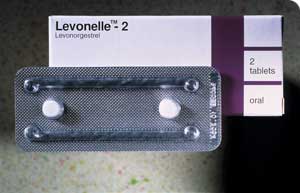
if you have unprotected sex or your normal contraceptive method fails, there are two methods of emergency contraceptive that might still prevent a pregnancy. Find out more from this fpa factsheet.
What is it and how does it work?
Emergency contraception can be used if your usual method of contraception has failed, or if you've had sex without using contraception (unprotected sex). If you act quickly, emergency contraception usually prevents pregnancy.
There are two methods:
* Emergency contraceptive pills contain the hormone progestogen. They must be taken within three days (72 hours) of unprotected sex.
* The intrauterine device (IUD) must be fitted within five days of unprotected sex. The IUD used to be known as the coil.
The emergency contraceptive pill
Emergency pills are more effective the sooner they're taken after sex. If taken within 24 hours, they prevent more than nine out of ten pregnancies that would have happened had no pills been taken. The IUD is 98 per cent effective if inserted up to five days after sex.
Emergency pills must be taken as soon as possible after sex.
The pills work by:
* stopping an egg being released (ovulation)
* delaying ovulation
* stopping an egg settling in the womb
Usually, your period arrives within a few days of when you expect it.
The IUD
IUDs must be fitted in the womb by a trained doctor or nurse. They work by:
* stopping an egg being fertilised
* stopping an egg settling in the womb
It can be removed during your next period if you want.
Advantages
* Neither method has any serious side effects, and most women can use emergency pills.
* IUDs are helpful if you're too late to take pills, if you don't want to take hormones or a long-term method of contraception.
Disadvantages
* With emergency pills, some women experience headaches, breast tenderness or abdominal pain. A few feel sick or vomit.
Can anyone use emergency contraception?
Not everyone can use an IUD. See the feature on IUDs.
General comments
Some prescribed and over-the-counter medicines can affect the way the emergency pills work. Ask your doctor, nurse or pharmacist for advice.
Emergency pills can be taken more than once, but they are not as effective as using a regular method of contraception. If you don't want to get pregnant, use contraception.
Where to get it
Contraception is free on the NHS.
Emergency pills are available free from GPs, family planning clinics, young people's clinics or Brook centres, genitourinary medicine (GUM) clinics, most NHS walk-in centres in England, some pharmacies, and some hospital accident and emergency departments (phone ahead).
You can buy hormonal emergency contraception at some private clinics and from most pharmacies if you are 16 or over
The IUD is available free from some GPs and family planning clinics.
No comments:
Post a Comment